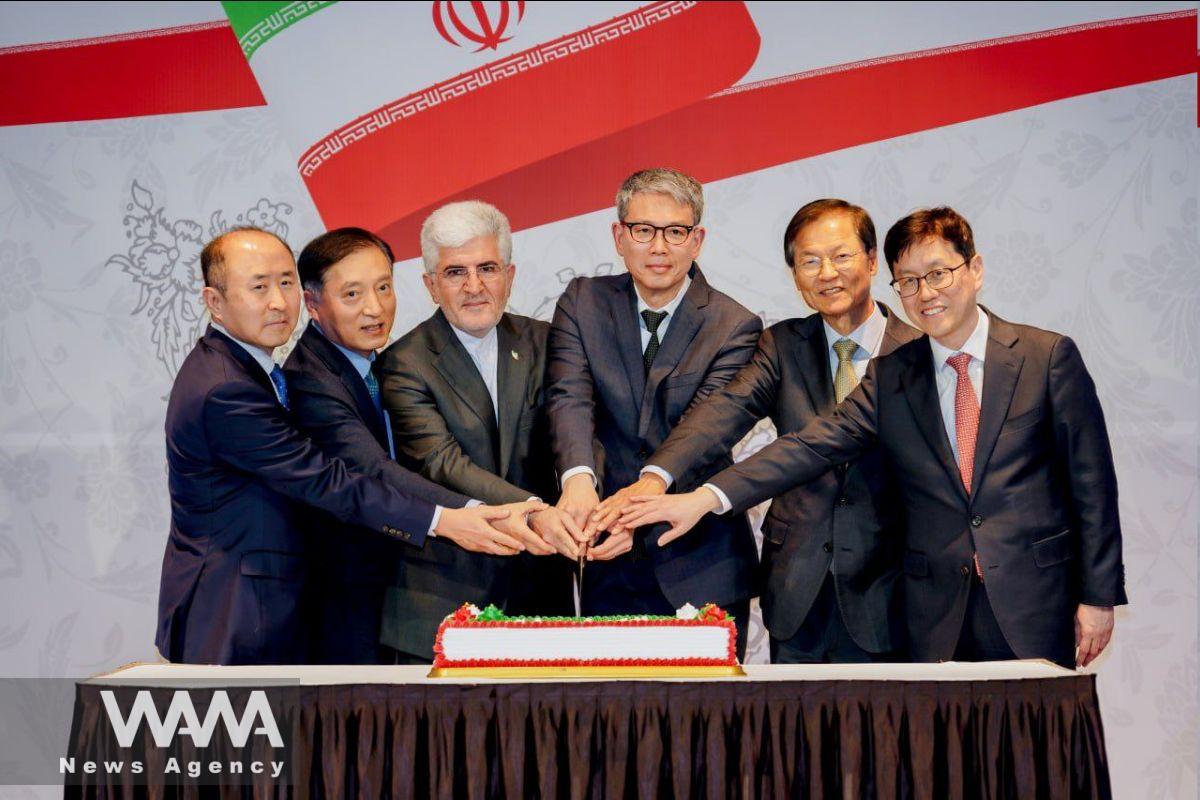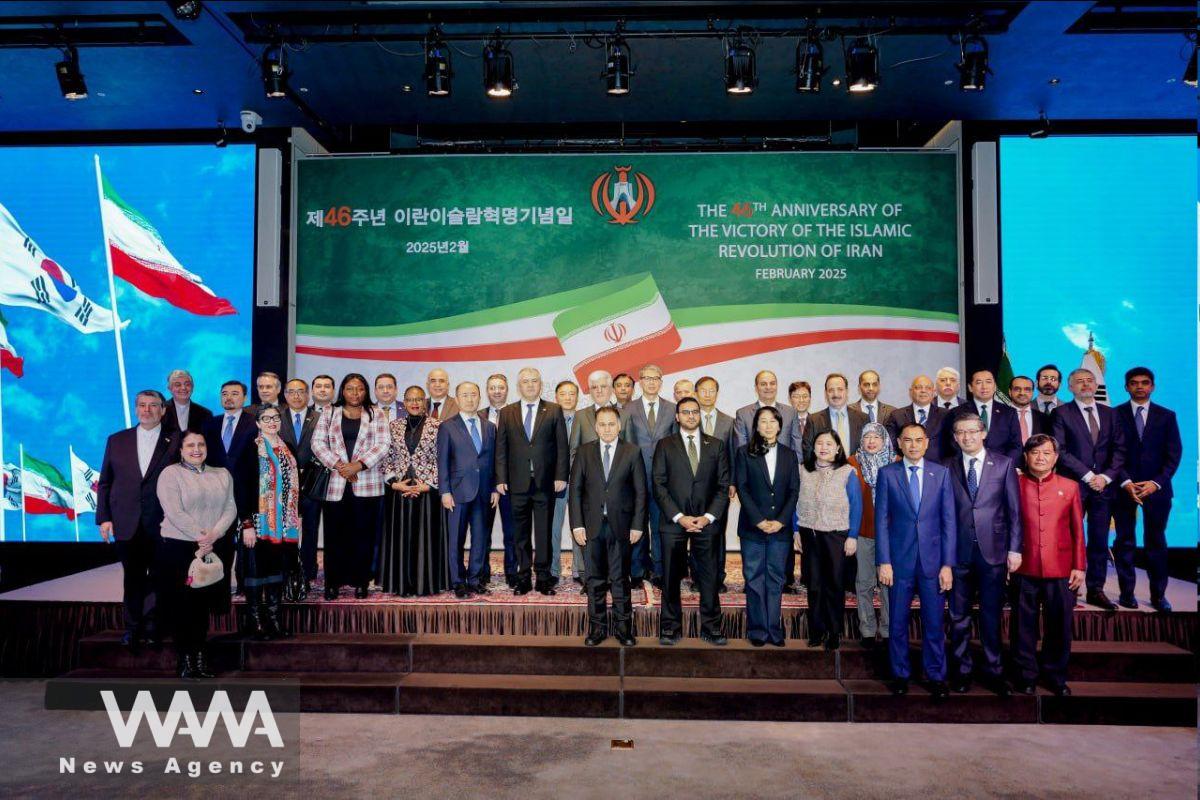Iran-South Korea Ties Strengthen Amid Diplomatic Engagements
WANA (Feb 11) – South Korea’s Deputy Foreign Minister for Climate Change, Chang Ki-young, highlighted the significant improvement in bilateral relations between Iran and South Korea over the past two years. He attributed this progress to high-level visits to Tehran, the resolution of Iran’s frozen assets in South Korea, and meetings between the two countries’ foreign ministers on the sidelines of the UN General Assembly.
His remarks were made during a ceremony in Seoul marking the 46th anniversary of Iran’s Islamic Revolution and National Day, attended by Iranian Ambassador Saeed Koozehchi, senior South Korean diplomats—including Director-General for West Asia and North Africa Chang Kwan-young—and a large gathering of foreign ambassadors, diplomats, cultural figures, and media representatives.
Iran Highlights Independence, Regional Diplomacy
In his speech, Ambassador Koozehchi underscored Iran’s determination to overcome internal tyranny and foreign intervention in its pursuit of independence and freedom over four decades ago. He credited Iran’s national unity and resilience for the country’s advancements, which have placed it among the world’s top nations in science and technology.

The ceremony of the 46th anniversary of Iran’s Islamic Revolution and National Day in Seoul. Social media WANA News Agency
Koozehchi also emphasized Iran’s commitment to regional diplomacy, particularly its “neighborhood policy”, aimed at strengthening ties with neighboring countries. He pointed to Iran’s active engagement with international organizations such as BRICS, the Shanghai Cooperation Organization (SCO), the Economic Cooperation Organization (ECO), and D-8 as part of its broader strategy to secure national interests, maintain regional security, and expand economic diplomacy.
“Iran welcomes any dialogue and cooperation among regional countries that contribute to peace, stability, and security,” he stated.
The Iranian envoy further stressed Iran’s opposition to terrorism and illegal U.S. sanctions, calling them key pillars of its foreign policy. He reiterated Iran’s commitment to balanced political, economic, and cultural relations with all nations, emphasizing de-escalation and collective security.
Turning to the Middle East, Koozehchi condemned over seven decades of atrocities against Palestinians, describing it as a tragic chapter in history marked by violations of basic human rights and desecration of Islamic and Christian holy sites.

The ceremony of the 46th anniversary of Iran’s Islamic Revolution and National Day in Seoul. Social media WANA News Agency
South Korea Calls for Deeper Bilateral Cooperation
In his address, Deputy Foreign Minister Chang Ki-young congratulated the Iranian people on the anniversary of the Islamic Revolution and reaffirmed South Korea’s commitment to strengthening bilateral ties.
“Like Persian carpets, woven with artistry and precision, the relationship between our two nations has been carefully shaped over history,” he remarked, citing the discovery of Persian artifacts in the tombs of the ancient Silla kings in Korea as evidence of long-standing cultural ties.
Chang highlighted recent diplomatic milestones, including high-level visits, the resolution of Iran’s frozen assets, and diplomatic engagements between the two foreign ministers, as key factors in boosting relations during Ambassador Koozehchi’s tenure.
He also pointed to ongoing scientific, technological, environmental, infrastructure, medical, and pharmaceutical cooperation, as well as growing cultural exchanges between the people of both nations.
Expressing optimism about the future, Chang stressed the importance of trust, dialogue, and collaboration, hoping that the next chapter in Iran-South Korea relations would be even more fruitful.












